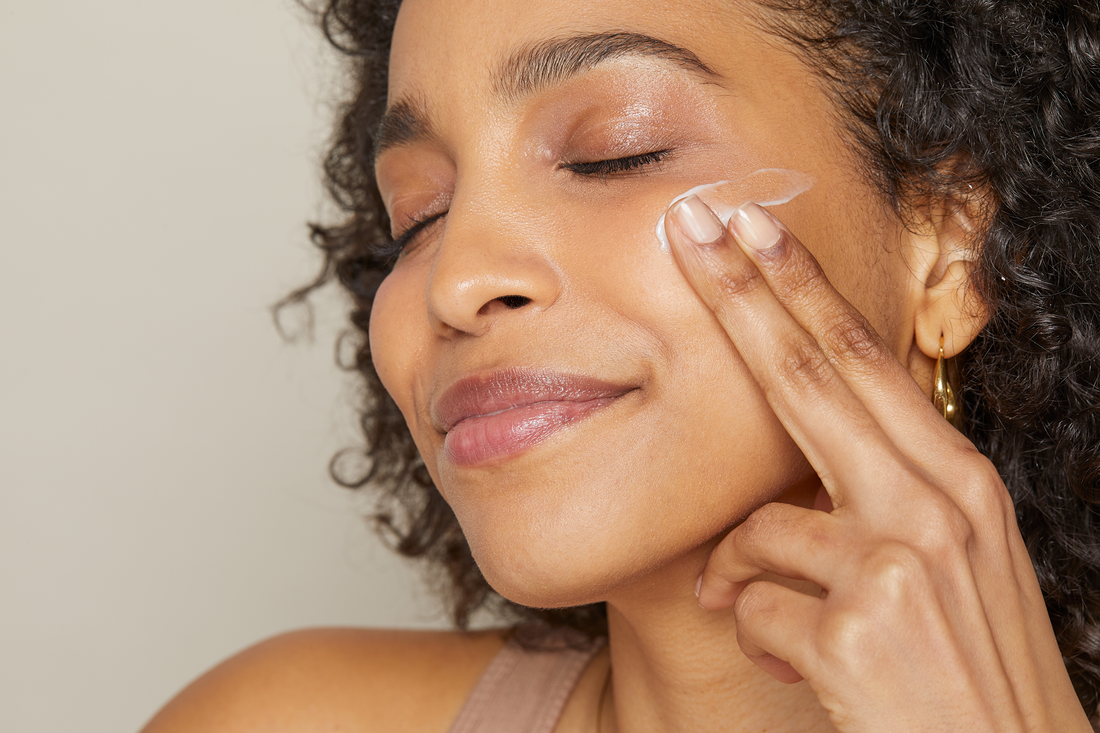
Ask a Dermatologist: Can I Shrink My Pores?
Dr. Courtney Rubin, our Chief Medical Officer, weighs in on your most pressing skincare questions.
You can’t actually shrink your pores, but you can minimize their appearance.
Pores are natural openings in the skin surface where hair follicles reside and where sweat and sebum are released onto the surface of the skin. Pores are an important part of skin physiology and play a role in the ways that skin naturally regulates itself. "Poreless" skin should never be a goal, as all normal and healthy skin has pores.
Why do some pores appear larger than others?
Certain skin conditions can make pores appear larger. For example, someone with acne-prone skin may have high sebum production. Excess sebum can clog pores and make them appear larger. Additionally, dead skin cells that do not exfoliate away properly can get trapped in pores. When these trapped, dead skin cells oxidize, they form dark-colored keratin debris that can make pores look dark and more noticeable.
How can I minimize the appearance of pores?
Minimizing the appearance of pores usually involves two types of active ingredients: exfoliators and retinoids. Exfoliating ingredients like alpha and beta hydroxy acids help to remove dead skin cells that can get stuck in pores and form blockages. Beta hydroxy acids like salicylic acid, especially, are great for getting dead skin cells out of clogged pores because they are oil soluble and can actually get into the pore. Additionally, retinoids (like retinol) are great for minimizing the appearance of pores because they reduce sebum production (which helps prevent pores from getting congested with excess sebum) and also normalize skin turnover so skin cells are less likely to stick to themselves and get stuck in pores. Of course, sun protection is always important. Loss of collagen and elastin from photodamage can lead to enlarged pores as skin loses its elasticity and bounce.
How does age affect pores?
As we get older, we lose the collagen and elastin that give our skin its bouncy and springy properties (i.e., its ability to bounce back after being stretched out). Losing elasticity over time leads to skin sagging and also to loss of structural support surrounding pores, making pores larger. Sun exposure accelerates this process as UV light contributes to collagen and elastin breakdown.
How do pores help maintain healthy skin?
The sebum released through pores onto the surface of the skin is an important component of keeping the surface of the skin intact and hydrated. Pores “open,” clean and “close” with regularity to keep our skin well regulated, and chemical exfoliators can help this process along.
What not to do:
A lot of people think that water and heat are involved in the shrinking of pores, that's why portable steamers have started to become trendy. While these tools might marginally help, it's really chemical exfoliators and retinoids that work to clear and "shrink" the appearance of pores. Similarly, when you try to clear pores using mechanical exfoliation, like harsh scrubs or pore strips, you can incidentally start a vicious cycle of sebum overproduction, leading to more clogged pores. Steam, scrubs and strips generally fall into a category of "quick-fix" solutions that can cause long-term harm, even if they feel really good upon use.